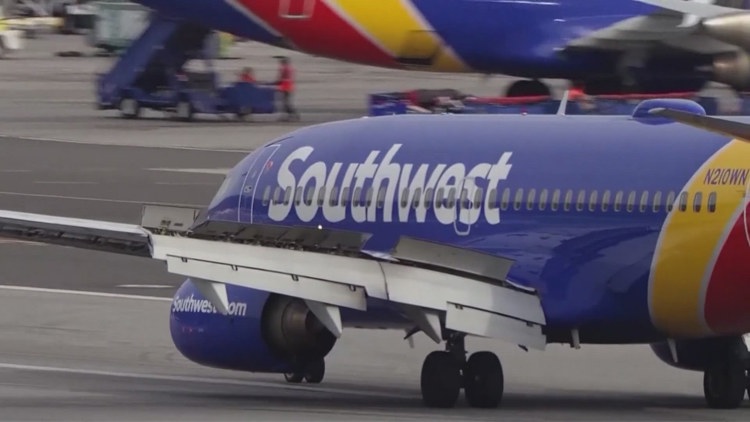SAN ANTONIO — Southwest Airlines is escalating its impasse with San Antonio over what it calls “fundamentally flawed” airport terminal allocations, accusing the city and its aviation head of discriminating against the company in a lawsuit filed.
Both the airline and city representatives were in court Monday afternoon for a hearing over a temporary restraining order (TRO), which would delay at lease agreement with Southwest. The judge denied the TRO after over an hour of arguments from both sides.
The standoff is centered on the forthcoming Terminal C at San Antonio International (SAT), which will be more than twice as big as the two existing terminals combined, and the airlines that will fly out of there as part of a new lease agreement going into effect in just days. Southwest, which says it carries more travelers than any other U.S. airline, has said San Antonio aviation officials repeatedly promised the airline that all or most of its 10 gates at SAT would move to Terminal C.
The City of San Antonio said this is response to the lawsuit:
“As the fastest growing city in America, we remain committed to doing what is best for San Antonio International Airport and the millions of passengers that use it each year," said City Manager Erik Walsh. "The airline agreement is the foundation of our Terminal Development Program, and Southwest’s actions could have the effect of halting our progress and keeping the airport the way it is. We have signed agreements and/or letters of commitment from eight other airlines representing 65 percent of SAT’s passengers.
• American
• Alaska
• Delta
• Spirit
• United
• Viva Aerobus
• FedEx
• UPS
SAT has added six new nonstops this year and set records for passenger growth for 16 months straight.”
In court Monday, one of Southwest Airlines' argument is that the city is defying the Airline Regulatory Act. The judge is asking how that applies since this isn't a city ordinance, it's a contract, aka what laws are being broken for that to apply. The airline also said its brand and reputation would be damaged if the TRO was not granted, but the judge, in his denial of the TRO, said he doubted that claim.
This is a developing story and further updates will be added as they are received.



